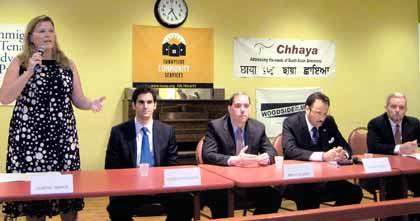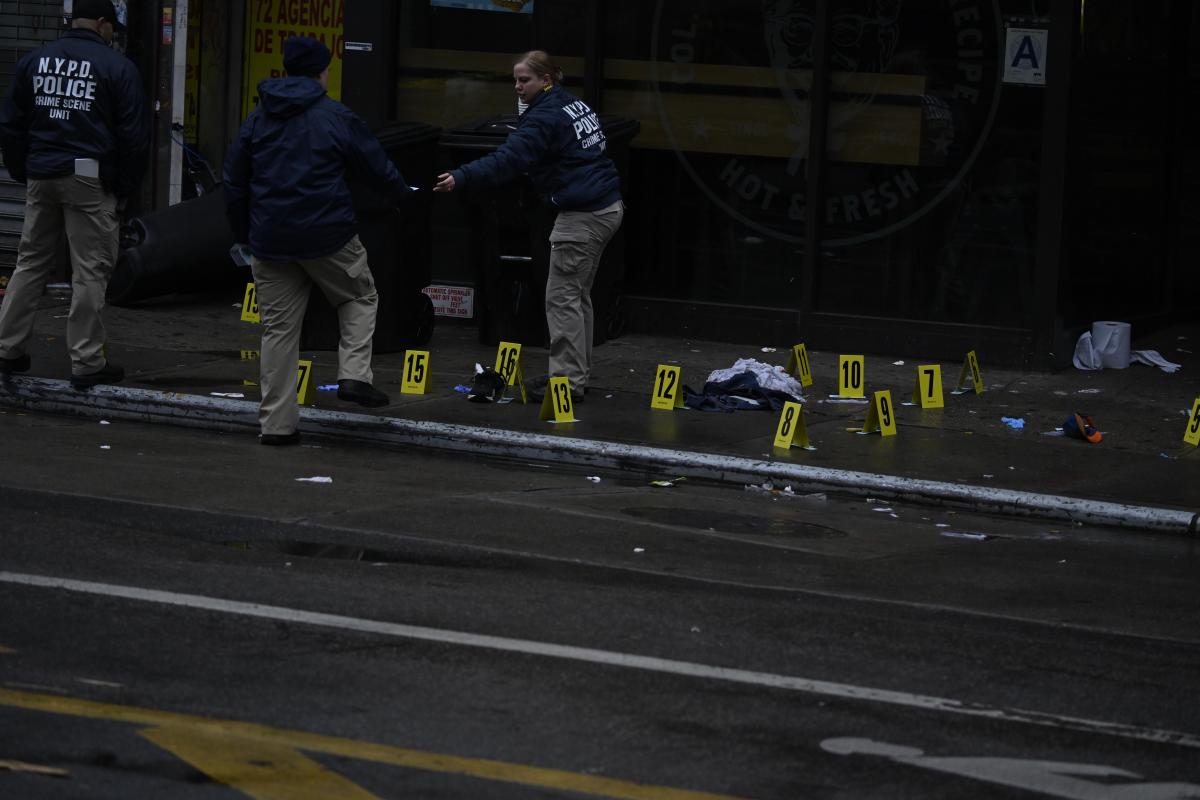By Jeremy Walsh
The race for City Councilman Eric Gioia’s (D-Sunnyside) seat heated up a bit last week as the five candidates sparred over issues of affordable housing.
At a forum hosted by Sunnyside Community Services, Make the Road New York, Woodside On the Move, Queens Community House and the Catholic Migration Office, Deirdre Feerick, Angelo Maragos, Brent O’Leary, and Jimmy Van Bramer assailed vacancy decontrol for rent-regulated apartments and private equity-backed landlords, while David Rosasco warned that illegal conversions done by smaller landlords were a bigger problem for the district.
Feerick, an attorney who has worked for the City Council for 12 years, said she would negotiate during the planning stages of a development to ensure a residential project would be affordable to the community.
“We should be making sure that whatever we are building is able to be lived in by the people building it,” she said, referring to blue-collar workers.
Maragos, a financial analyst and the sole Republican in the race, said the city should adapt to the conditions of the economic downturn to help make neighborhoods more affordable.
“There are many properties in distress either in foreclosure or in tax delinquency,” Maragos said. “The city has the opportunity to buy these properties and transfer the titles to tenants.”
O’Leary, a business attorney for Bloomberg LP, said he would fight to repeal vacancy decontrol, which allows a landlord to list a rent-stabilized apartment at the market rate once the rent reaches $2,000 a month.
Rosasco, a professional translator running as a conservative Democrat, focused on problems with smaller landlords.
“We have to bring enforcement of the law as the centerpiece,” he said, referring to illegal conversions in two- and three-family homes in Sunnyside and Woodside. “We look at the big fish in the ocean and not the little guppies that swim around.”
Van Bramer touted inclusionary zoning, which would require developers to incorporate affordable housing into any major residential project in a neighborhood.
He also broached the subject of accepting campaign contributions from developers, saying he was the only candidate who had pledged not to. O’Leary, Maragos and Rosasco all denied they had received money from developers.
Feerick said she had accepted some contributions from real estate interests, but denied it would affect her decision-making, noting she was a supporter of the Tenant Harassment Act that passed in the Council last year.
“I will speak to people that I disagree with,” she said. “I won’t agree with you all the time. … But you’re the only people I’m accountable for.”
Feerick, who has raised $70,410, received at least $10,100 of that, or about 14 percent, from real estate developers or lobbyists.
Van Bramer, who had $71,158 by the July filing deadline, was the top contributor to his own campaign with $8,075 given in January 2009. He received at least $9,250 from various unions, along with $2,575 from his partner, Dan Hendrick, and $1,000 from the Gay and Lesbian Victory Fund.
O’Leary, who had raised $39,066, contributed $8,250 to his own campaign and received $2,750 each from Tokyo, Japan, residents Robert Melson and Brian Nelson. He received more contributions from friends in Japan; Washington, D.C.; and New Jersey.
Maragos had raised $17,185 by the July Elections Board filing deadline. He contributed $8,250 to his own campaign and received another $2,750 from a relative. Most of his other contributions appeared to be from the Greek community in Queens.
Rosasco, who had raised $5,589, according to the state Elections Board, received his largest contribution from a family member: $329.
Reach reporter Jeremy Walsh by e-mail at jewalsh@cnglocal.com or by phone at 718-229-0300, Ext. 154.






























